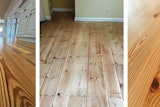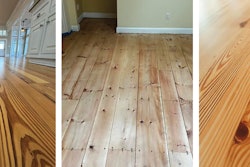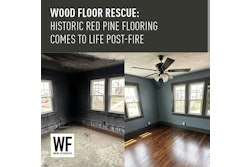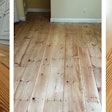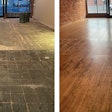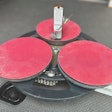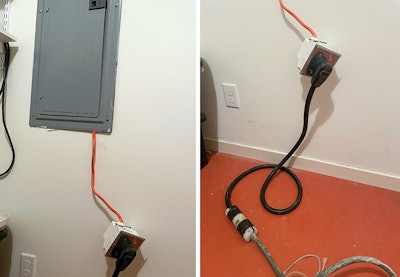
Growing up in the wood flooring industry, we did whatever we needed to do to get power, usually hooking up right into the box. In the late 70's there was a state inspector in Edina, Minn., who would literally pull your cords out of the box and cut them up—but of course we kept doing it. I remember being on certain jobs where electricians were there and would hook it up for us, and they would tell us that doing it ourselves was unsafe and illegal—but, again, we kept doing it. We would use pigtails to hook up to a range or dryer outlet if it were available, but if not, we'd go right into the box. Then a couple things happened that changed how I deal with electricity on all my wood flooring jobs.
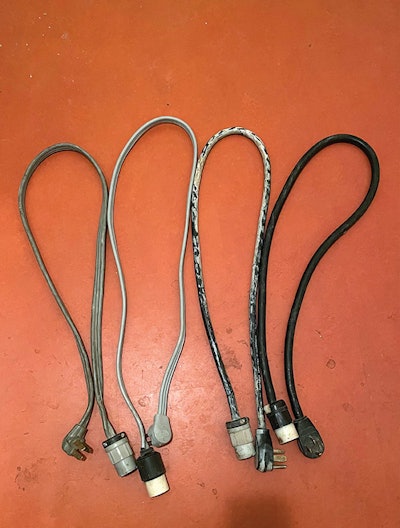 I have this collection of pigtails I can use to safely hook up 220 power when there is an electric range or dryer.
I have this collection of pigtails I can use to safely hook up 220 power when there is an electric range or dryer.
Not that long after that I was working for a remodeling contractor in downtown Minneapolis in a townhome complex. There was no stove or dryer hookup, so I needed to go into the box. I walked in with all my cords to hook up power, but I had forgotten something in my truck, so I dropped the cords and ran outside. When I got back to the box, there was a state inspector waiting for me. He pulled me aside, and he was pissed, reaming my butt out. I tried to calm him down, telling him if there were a range or dryer I would have used it. He said, "Oh, like you have those plugs?" He didn't believe me until I walked him over to my truck and showed him. He changed his tune then, but he still wrote me a warning, and he told me, "I wrote two $10,000 fines already today, and I'd give you one if I could. They are non-negotiable." He added that I was endangering lives by hooking up into the box. The only thing that saved me from that fine was that I had forgotten something in the truck and hadn't actually taken the cover off the electrical box. I told him I would call the electrician to get it wired in, and he asked for the electrician's phone number and said he'd be back to check—and he was.
RELATED: Electricity for Wood Floor Pros 101
From that day on, I have never hooked up into a box again. I have two electricians who do it for me. One charges $135 and one charges $150, so the cost is a non-issue—comparable to a jug and a half of finish. Both of them are great at it, and I try to give them a week's notice. Of course some electricians won't want to deal with jobs like this, so you have to find one geared more toward service work as opposed to running wire all day.
I've heard people say that it would be too complicated to be scheduling an electrician to come do the hookup, but to that I say: You're running a business. All of this is a liability; do you want a client to possibly get hurt? If you are in the box with the cover off and a client blows a breaker and they go down there to flip that breaker, the consequences could be tragic.
Now I use the fact that we use electricians as a selling point. At the end of the estimate, I'll say, "I see you don't have an electric range or dryer, so when you have me do your wood floors, there will be a licensed electrician coming to hook up power." Usually they'll ask why, so I explain that professional wood floor sanding machines require 220 or 230 volts to operate, and it's required by law that an electrician do that. Sometimes they'll ask: "So the last guy who came and did our floors was doing that illegally?" I just say, "Yes, sir" or "Yes, ma'am." I know of several jobs I've gotten because of just that fact. When people realize what you are doing is in their best interest, it's never an issue.
One of my favorite sayings as a wood flooring pro is, "Let's be safe today so we can work tomorrow." Making sure you are doing what's safe and legal when dealing with electricity will protect you, your workers, your clients and your business.
RELATED: Motors 101 & What Wood Flooring Pros Should Know, Part 1










